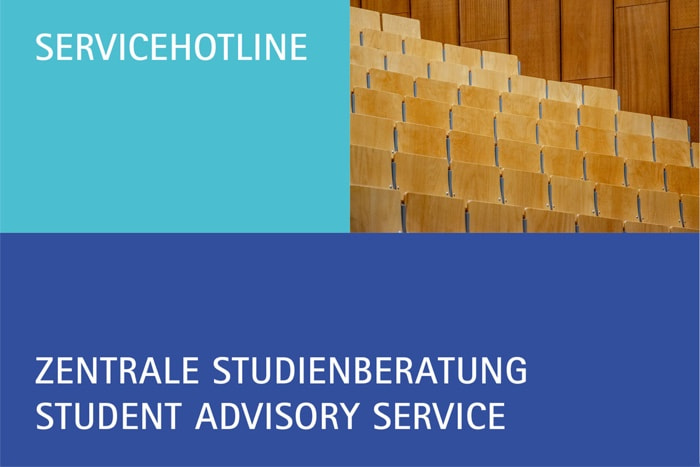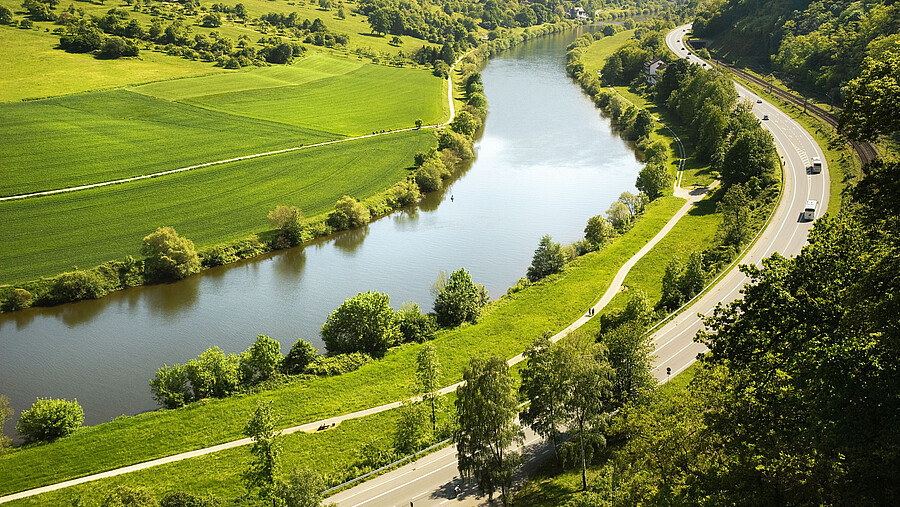Water and Environment (distance learning)
(Master of Science)
Profile
Part-time study is optional.
German HZB: none
International application: German C1
Find out more
This programme is fee-based.
Short Description
The distance learning programme in Water and Environment is a theory-based and practice-oriented interdisciplinary engineering course. The general aims include acquiring the ability to transfer theory-based knowledge to practical engineering applications, learning to think laterally in order to quickly familiarise oneself both methodologically and systematically with new issues, and training key transferable skills.
The specialist aim include:
- The ability to plan water use in accordance with national and international legal and socio-political specifications
- The command of specific system conditions concerning surface water and groundwater
- The acquisition of technical know-how in water resources management, river basin management, water development, water quantity planning and environmental technology.
The innovative approaches and special features of the distance learning programme in Water and Environment can be seen in the interdisciplinary nature of the Water and Environmental course content, the coupling of theory and practice, the training of supplementary and key transferable skills, as well as the multimedia preparation of study material and the special design of the course as a part-time distance learning programme.
Course Content
- Bioenergy
- Ecology
- Hydrology
- Hydromechanics
- Groundwater
- Modelling
- River basin management
- Sanitary engineering
- Water resources management
The Master’s degree programme comprises a compulsory stage, a specialisation stage and the Master’s thesis (see Overview of Course Sequence). The individual modules are divided into a distance learning stage and an attendance stage, enabling students to take the programme while in employment. During the distance learning stage, students regularly receive study material that is made available via an internet platform. These study units combine text materials and assignments for completion during term time. During the attendance stage, all students, the team of supervisors, selected authors and other contributors come together to expand on the content. The attendance stages include project and practice-oriented elements which, due to the involvement of interactive and innovative aspects and teaching methods, help students to train key supplementary and transferable skills. The attendance stage ends with an examination. Students who have passed all of the necessary examinations then write a Master’s thesis (time allowed for completion: six months), leading to the conferral of the Master of Science degree.
| Compulsory stage Credit points to be earned: |
|
|---|---|
| Master’s thesis (time allowed for completion: 6 months) (30 CP) | |
| Specialisation stage Credit points to be earned: |
|
- An interest in exploring the area of water and environment from all kinds of scientific and engineering perspectives so as to be able to apply a broad knowledge base to processes of understanding across disciplinary boundaries in the future professional field
- A high degree of self-motivation and discipline because the course is usually taken as a part-time distance learning programme
- Openness to multimedia forms of learning and communication.
Graduates of the degree programme have in-depth knowledge of science and engineering in areas relevant to the profession3; they have knowledge of methods in planning and modelling; and they are capable of thinking in an abstract, analytical and lateral way. Graduates are employed in engineering and planning offices specialising in environmental technology, in water supply and wastewater treatment, in energy production, in major industrial companies, in water resources management authorities, licensing and regulatory authorities.
Admission Requirements
An undergraduate degree in a related field of study, such as
- Architecture (Bachelor of Science)
- Civil and Environmental Engineering (Bachelor of Science)
- Computer Engineering (Bachelor of Science)
- Computer Science (Bachelor of Science)
- Electrical Engineering and Information Technology (Bachelor of Science)
- Geodesy and Geoinformatics (Bachelor of Science)
- Geography (Bachelor of Arts, Bachelor of Science)
- Geosciences (Bachelor of Science)
- Landscape Architecture and Environmental Planning (Bachelor of Science)
- Life Science (Bachelor of Science)
- Mechanical Engineering (Bachelor of Science)
- Mechatronics (Bachelor of Science)
- Meteorology (Bachelor of Science)
- Physics (Bachelor of Science)
- Power Engineering (Bachelor of Science)
For master's degree programmes with unrestricted admission, all applicants who fulfil the admission requirements will be admitted a university place. The exact admission requirements can be found in the admission regulations:
There is no minimum grade / entry grade for the Master''s application. Notwithstanding the currently valid admission regulations for Master''s programmes, the minimum grade of 2.5 is no longer applied. The admission regulations will be revised in this regard.
Application Deadlines
First-year students
- 1 June – 15 July of the year for the winter semester
- 1 December – 15 January of the year for the summer semester
Students resuming their studies and transfer students (application in a higher semester)
- 1 June – 15 July of the year for the winter semester
- 1 December – 15 January of the year for the summer semester
Do you have questions about studying? We are happy to help!

30167 Hannover

30167 Hannover













